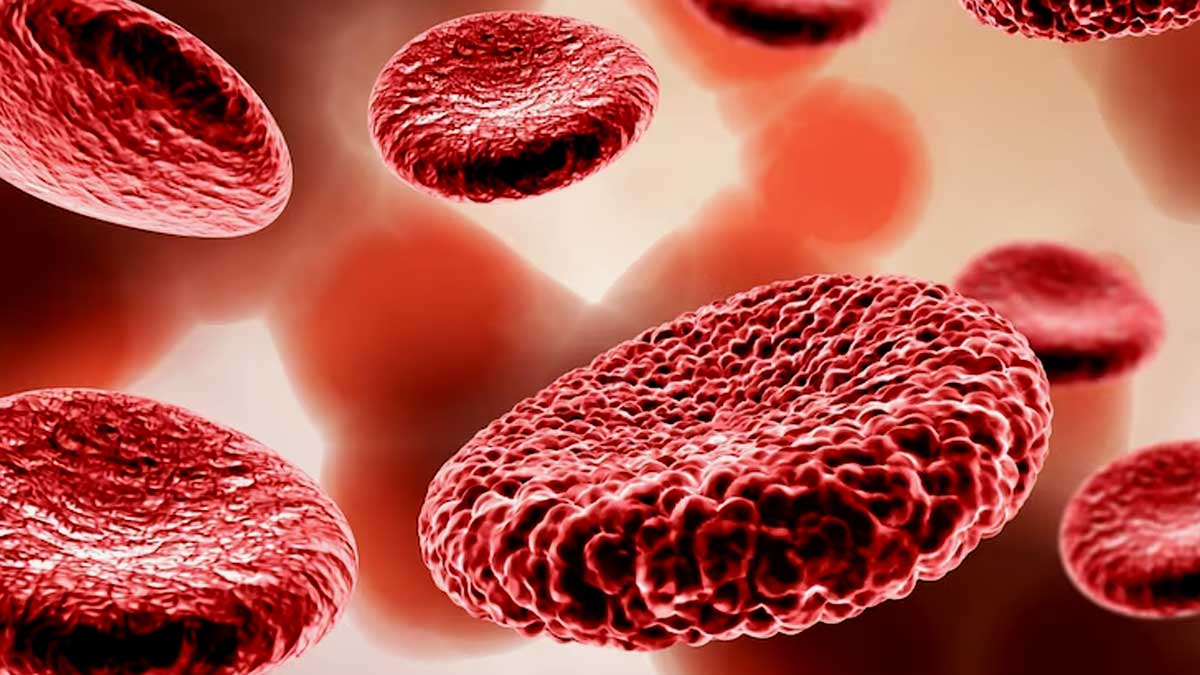
Are you often left feeling fatigued, weak, and just not yourself? You might be experiencing the effects of anaemia. Anaemia is a common condition that occurs when your body doesn't have enough red blood cells to carry oxygen to your tissues.
Table of Content:-
"Anaemia is a condition in which there are either too few RBCs or too little haemoglobin in each RBC. Haemoglobin is a substance that helps RBCs carry oxygen around the body," said Dr Pranjit Bhowmik, Director-Internal Medicine, Asian Hospital, Faridabad.
"Vitamins like vitamin B12 and folic acid or vitamin B9 play an important role in many processes in your body, including RBC production. When your body lacks certain vitamins, it is unable to manufacture regular RBCs. These cells are unable to transport oxygen to all of your body's tissues and die faster than normal cells, resulting in anaemia." He added.

As per World Health Organisation (WHO), anaemia is a global public health concern that disproportionately affects young children, menstrual adolescent girls and women, pregnant and postpartum women, and pregnant and postpartum women. WHO estimates, 40% of children aged 6 to 59 months, 37% of pregnant women, and 30% of women aged 15 to 49 are anaemic worldwide.
Fatigue That Exist For A Prolonged Period
One of the most prevalent symptoms of anaemia is persistent fatigue. If you find yourself feeling unusually tired even after a good night's sleep or minimal physical exertion, anaemia might be a factor. Without enough oxygen-rich blood cells, your body struggles to produce the energy you need to get through the day.

Also read: Study Links Increasing Prevalence Of Anaemia To Particulate Matter
Pale Skin and Weakness
Anaemia can cause a noticeable paleness in your skin, especially in the face and palms of your hands. This is due to the reduced amount of haemoglobin in your blood, which gives blood its red colour. When your blood lacks this pigment, your skin can take on a more pale or washed-out appearance. Alongside paleness, you might experience general weakness and dizziness.
Shortness of Breath
If you find yourself out of breath after simple tasks like climbing a flight of stairs or even just walking short distances, it could be a sign of anaemia. The lack of oxygen-carrying red blood cells means your body isn't getting the oxygen it needs to function efficiently, leading to feelings of breathlessness.
Rapid Heartbeat
Anaemia can lead to a faster heart rate, known as tachycardia, as your heart works harder to pump oxygen throughout your body. This can result in palpitations or a sensation that your heart is racing even when you're not engaging in strenuous activity.
Cold Hands and Feet
Do you often have chilly extremities even when the temperature is comfortable? Anaemia can cause poor circulation, leading to cold hands and feet. Your body prioritises supplying vital organs with oxygen, leaving your extremities feeling cold due to reduced blood flow.
Brittle Nails and Hair Loss
As per National Library Medicine, anaemia can also impact the health of your nails and hair. You might notice that your nails become brittle and break more easily. Hair loss or thinning can also occur as a result of decreased blood flow to the scalp, affecting hair follicle health.
Unusual Cravings
Believe it or not, anaemia can influence your dietary preferences. Some people with anaemia develop unusual cravings for non-nutritive substances like ice, dirt, or chalk. This condition, known as pica, can be a sign that your body is seeking nutrients it's lacking.
Also read: Sickle Cell Anaemia: Symptoms, Causes & Treatment
Difficulty Concentrating
Reduced oxygen supply to the brain can lead to difficulty concentrating and cognitive challenges. If you find that you're having trouble focusing or remembering things, anaemia might be a contributing factor.
Remember, these symptoms can also be caused by various other factors, so it's essential to consult a healthcare professional for an accurate diagnosis. If you suspect you might have anaemia, seeking medical attention is crucial. Your doctor can perform blood tests to determine your haemoglobin and iron levels and recommend appropriate treatment if anaemia is confirmed.
Also watch this video
How we keep this article up to date:
We work with experts and keep a close eye on the latest in health and wellness. Whenever there is a new research or helpful information, we update our articles with accurate and useful advice.
Current Version